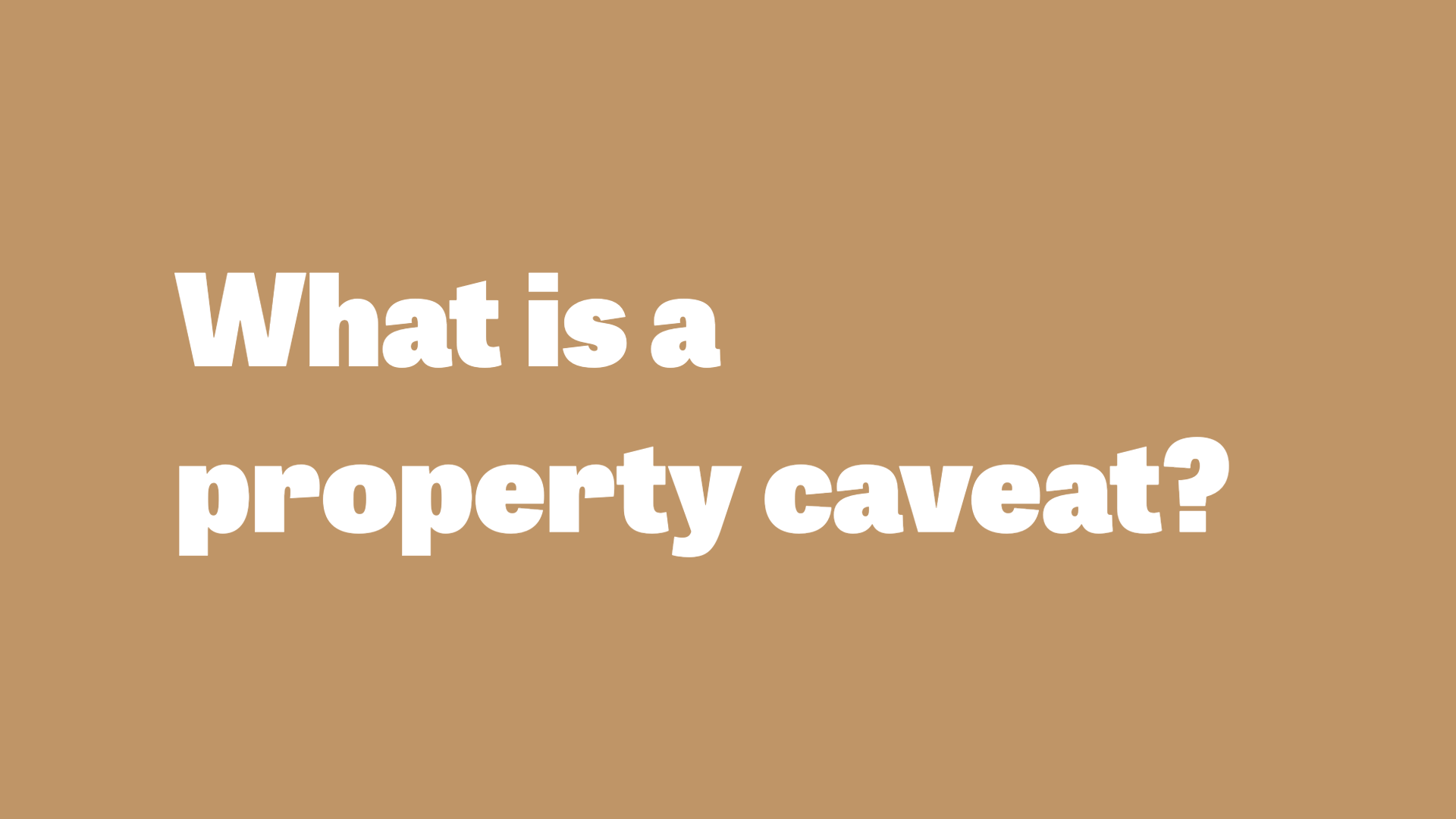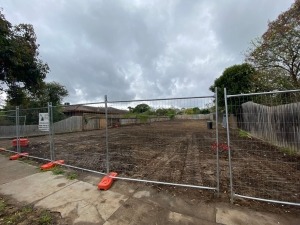A property caveat is a legal notice or warning that is lodged with the relevant government authority to inform interested parties, particularly potential buyers and creditors, that there is a legal interest or claim on a specific property. It is a common legal mechanism used in real estate transactions to protect the interests of individuals or organizations who have a stake in a property, even if they are not the current owner.
These are regulalry seen in new land estates where many buyers look to purchase a house and land package. There are a number of advantages and disadvantages associated to having a property caveat ad we discuss these in this market insight.
Here are some key points to understand about property caveats:
1. Purpose: Property caveats are typically used to prevent the sale or transfer of a property without the consent or notification of the person or entity who lodged the caveat. They serve as a legal safeguard to ensure that the rights of the caveator (the person lodging the caveat) are protected.
2. Types of Caveats: There can be various types of property caveats, depending on the specific circumstances. Some common types include caveat as to the estate or interest claimed, caveat as to a proprietary right, or caveat as to the exercise of a power of sale.
3. Caveator’s Interest: To lodge a caveat, the caveator must have a valid legal interest or claim in the property. This interest could be based on a contract, a mortgage, a trust, or some other legal arrangement. The caveator needs to demonstrate that they have a legitimate interest in the property.
4. Effect: Once a property caveat is lodged, it serves as a notice to anyone who intends to deal with the property that there may be a dispute or claim regarding its ownership or use. This can make it challenging to sell or mortgage the property until the caveat is resolved.
5. Removal of Caveat: A caveat can be removed through various means, including by consent of the caveator, a court order, or by demonstrating that the caveator’s claim is invalid or has been satisfied. Removing a caveat typically requires legal proceedings.
6. Legal Advice: It’s important for both parties involved in a property caveat dispute to seek legal advice. The process can be complex and may involve negotiations, mediation, or litigation to reach a resolution.
Property caveats vary in their specifics from one jurisdiction to another, so it’s crucial to consult with a legal professional who specializes in real estate law in your area to understand the specific rules and procedures that apply. Additionally, property caveats are a legal tool used to protect interests and resolve disputes related to real estate, and they should not be taken lightly.
Advantages of having a property caveat
Lodging a property caveat can have several advantages for individuals or entities seeking to protect their interests in a property. Here are some of the potential benefits of having a property caveat in place:
1. Protection of Legal Rights: The primary advantage of lodging a property caveat is that it helps protect the legal rights and interests of the caveator. It serves as a formal notice to anyone dealing with the property that there may be a dispute or competing claim regarding its ownership or use.
2. Preventing Unwanted Transactions: A property caveat can deter or prevent unauthorized or unwanted property transactions, such as sales or mortgages, without the consent of the caveator. This can be particularly valuable when there is a genuine dispute over property ownership or when a property is subject to ongoing legal proceedings.
3. Securing Priority Interests: In cases where multiple parties have claims or interests in the same property, the caveat can establish the priority of those interests. This can be important in situations involving debts, mortgages, or other financial arrangements.
4. Notification to Third Parties: A property caveat acts as a public record, notifying third parties, including potential buyers, creditors, and other interested parties, that there is a dispute or claim associated with the property. This transparency can discourage individuals or entities from entering into transactions without fully understanding the situation.
5. Legal Leverage: Having a property caveat in place can provide the caveator with legal leverage in negotiations or settlement discussions related to the property dispute. It may encourage parties to come to a resolution without resorting to lengthy court proceedings.
6. Preservation of Assets: For businesses or individuals with a significant financial stake in a property, lodging a caveat can help safeguard their investment and prevent the loss of valuable assets.
7. Time to Resolve Disputes: Property caveats can provide additional time for the parties involved to negotiate, mediate, or resolve the underlying property dispute without the immediate threat of a property sale or other transactions.
8. Legal Standing: A property caveat can establish the caveator’s legal standing in court or legal proceedings related to the property. It can be an essential step in asserting and defending one’s rights.
9. Enforcement of Contracts: If a property caveat is based on a valid and enforceable contract, it can help ensure that the terms of that contract are upheld, providing a legal remedy if the other party fails to fulfill their obligations.
10. Maintaining Property Control: In some cases, lodging a property caveat can help the caveator retain control of the property until the dispute is resolved, preventing the property from being transferred or used by others.
It’s important to note that the effectiveness of a property caveat depends on the specific circumstances and the legal validity of the caveator’s claim. Before lodging a caveat, individuals or entities should seek legal advice to ensure that it is an appropriate course of action and to understand the potential advantages and disadvantages in their specific situation.
Disadvantages of having a property caveat
While property caveats can serve as a valuable legal tool to protect one’s interests in a property, there are also several disadvantages and potential drawbacks associated with lodging a property caveat:
1. Financial Costs: Lodging a property caveat can involve legal fees and administrative costs. These expenses can accumulate if the caveat leads to a protracted legal dispute.
2. Potential for Legal Battles: A property caveat can trigger legal disputes, which can be time-consuming, emotionally draining, and expensive. Resolving these disputes may require going to court, and the outcome is uncertain.
3. Negative Impact on Property Sale: A caveat can hinder the sale of the property. Prospective buyers may be wary of purchasing a property with an unresolved caveat, or they may demand a price reduction or other concessions due to the uncertainty.
4. Difficulty in Obtaining Financing: Lenders may be reluctant to provide mortgages or loans for properties with caveats because they pose a risk to the lender’s collateral. This can limit the property owner’s financial options.
5. Strained Relationships: If the caveat is related to a dispute between family members, business partners, or neighbors, it can strain relationships and lead to long-lasting animosity.
6. Inconvenience: Property caveats can create administrative hassles and delays in property transactions, potentially affecting the timely execution of plans or projects.
7. Potential for Misuse: In some cases, individuals or entities may misuse property caveats as a tactic to hinder property sales or harass property owners, even if their claims have little merit. This misuse can lead to unjustified legal challenges.
8. Risk of Losing the Caveat: If the caveator’s claim is found to be invalid or unsubstantiated in court, the caveat may be removed, and the caveator may be liable for any damages or costs incurred by the property owner.
9. Limited Impact on Third Parties: While a caveat can notify potential buyers and creditors of the caveator’s interest, it may not prevent a sale or transaction entirely. Some parties may proceed with a property transaction despite the caveat, taking the risk that the caveat may be resolved in the future.
10. Complex Legal Process: The process of lodging or removing a caveat can be complex and time-consuming, requiring legal expertise. This complexity can add to the overall stress and burden of property disputes.
Given these disadvantages, individuals or entities should carefully consider the implications of lodging a property caveat and seek legal advice before taking such action. It’s essential to weigh the potential benefits of protecting one’s interests against the drawbacks and potential consequences, as well as explore alternative methods of resolving property disputes when possible.
What to do next?
To choose the right property, it would be very smart to seek advice from a property adviser who can help recommend the right location and property.
If you’d like to learn more about property investment, please don’t hesitate to contact us.
At Crest Property Investments we specialise in sourcing brand new and off the plan properties for buyers. We also do not charge fees to buyers! We would welcome the opportunity to help with your property purchase.
Our YouTube channel and Market Insights also provide a wealth of information to assist you with many areas relating to property.
While we have taken care to ensure the information above is true and correct at the time of publication, changes in circumstances and legislation after the displayed date may impact the accuracy of this article. If you want to learn more please contact us. We welcome the opportunity to assist you.
February 2024






